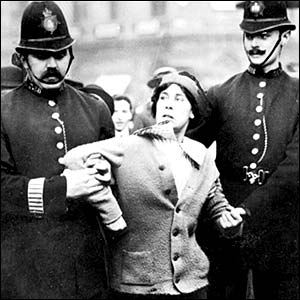Been Up So Long Looks Like Down To Me
In The New Yorker, Jill Lepore writes about the feminist background of Wonder Woman. It's a decent piece, and then we get this:
In 1972, Wonder Woman was named a “Symbol of Feminist Revolt”; the next year, the Supreme Court legalized abortion. But the aftermath of Roe v. Wade didn’t bolster the feminist movement; it narrowed it. If 1972 was a legislative watershed, 1973 marked the beginning of a drought. The movement stalled. Wages never reached parity; social and economic gains were rolled back; political and legal victories seemingly within sight were never achieved.
"Social and economic gains were rolled back." Which ones? Could she name them? I would think in the last 40 years we've seen little but major steps forward for feminism, so much that its basic tenets, dubious to large numbers in the 1970s, are barely questioned today (and woe to those who do).
She does get around to giving some vague examples in the next paragraph, but it's hard to believe this is what she's referring to:
Wonder Woman [...] ran for President on the cover of Ms. in 1972. She’ll run again; she’s never won. The Equal Rights Amendment never became law; in 1982, the deadline for its ratification expired. A century after [Margaret] Sanger started The Woman Rebel, even the fight for birth control isn’t over.
So there hasn't been a woman President? In the past few decades, for the first time ever, women have had a serious chance of winning the office, and have also been nominated for Vice President by both major parties. We've also had female Supreme Court Justices, Secretaries of State, a Speaker Of The House and many other high positions never before attained. And who cares what the sex of the President is anyway? If John McCain had been elected and then died, and Sarah Palin were the first female President, would Lepore consider that a great moment in feminist history? Meanwhile, we've had some Presidents in the past few decades who would happily describe themselves as feminists. But no go, Lepore refuses to accept any victories.
The ERA? Not exactly a rollback when it hadn't passed yet. Furthermore, sexual equality has been written into the law so many times since then that I'd like to know what difference Lepore thinks passage would have made.
The fight for birth control isn't over? This is a good case of moving the goalposts. The main battle today is whether or not the government should force private parties to pay for it. Doesn't sound like a rollback to me.
Even the wage gap, if you think that's a meaningful statistic, has gotten much better. In the 70s, women made 59% as much as men. There's been regular upward movement since then and today the number is around 77%.
You see this too often--someone behind a cause who didn't get absolutely everything (which is always the case) thus feels it's okay to say things are moving backward, no matter how huge the gains.
Like almost any widespread movement, feminism has struggles, within itself and with others. (The ones within may be more important. Feminism tends to see itself as a leftist cause, which for some reason means many feminists believe they should be opposed to capitalism and individualism. Unfortunate.) But it's rather tiresome when movements that have been advancing for a long time take the line that things are moving backward.



1 Comments:
If the movement's only measure of success is women achieving ever higher positions of power and authority, then where are the feminist voices supporting the candidacy of Joni Ernst in Iowa?
If Republicans win the white house in 2016, will the movement support the nomination of a Republican woman to replace Ginsburg (the most next likely vacancy on the S.Ct). or will we have to hear that nominee is not really a woman, like Clarence Thomas is not really black?
Post a Comment
<< Home